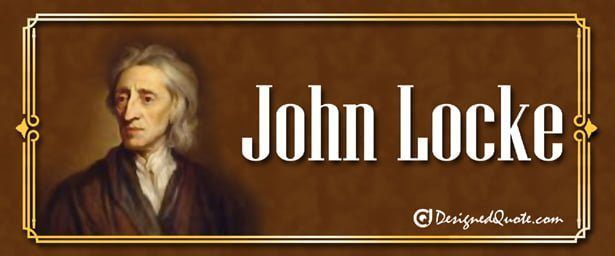
One of the most important philosophers of the Enlightenment period is commonly considered as being the English philosopher and political theorist John Locke (1632–1704). He is renowned for his contributions to political philosophy, metaphysics, epistemology, and education.
Locke was born into a Puritan family in the town of Wrington, Somerset, England. He went to Christ Church in Oxford and majored in natural philosophy and medicine there. Locke worked as a doctor and an English nobleman’s personal physician after completing his education.
In his “Essay Concerning Human Understanding,” which was published in 1689, Locke made the case that all knowledge is derived through experience rather than being innate. This book is considered to be Locke’s most renowned work. He had the opinion that the human mind is initially “tabula rasa” or “blank slate,” which is eventually filled with information and experiences as people interact with their environment.
Locke not only made important contributions to epistemology but also to political philosophy. He held that people should have an inherent right to life, liberty, and property and that governments should be founded on the agreement of the governed. Later, these concepts would shape liberal democracy and the American Declaration of Independence.
Some Thoughts About Education and Two Treatises of Government are two of Locke’s other well-known writings. He kept writing and publishing throughout of his life, and he rose to prominence in English intellectual circles.
Political, social, and educational institutions have been impacted by John Locke’s theories to a significant extent in contemporary Western thought. One of the most significant philosophers of the Age of Enlightenment, he passed away in 1704 and is still recognized today.
Read more about John Locke click here.
John Locke Quotes
- Education begins the gentleman, but reading, good company and reflection must finish him.
- Fortitude is the guard and support of the other virtues.
- We are like chameleons, we take our hue and the color of our moral character, from those who are around us.
- New opinions are always suspected, and usually opposed, without any other reason but because they are not already common.
- The improvement of understanding is for two ends: first, our own increase of knowledge; secondly, to enable us to deliver that knowledge to others.
- Things of this world are in so constant a flux, that nothing remains long in the same state.
- What worries you, masters you.
- It is of great use to the sailor to know the length of his line, though he cannot with it fathom all the depths of the ocean.
- Reading furnishes the mind only with materials of knowledge; it is thinking that makes what we read ours.
- Our incomes are like our shoes; if too small, they gall and pinch us; but if too large, they cause us to stumble and to trip.
- There is frequently more to be learned from the unexpected questions of a child than the discourses of men.
- There cannot be greater rudeness than to interrupt another in the current of his discourse.
- An excellent man, like precious metal, is in every way invariable; A villain, like the beams of a balance, is always varying, upwards and downwards.
- Our deeds disguise us. People need endless time to try on their deeds, until each knows the proper deeds for him to do. But every day, every hour, rushes by. There is no time.
- The dread of evil is a much more forcible principle of human actions than the prospect of good.
- I have always thought the actions of men the best interpreters of their thoughts.
- Any one reflecting upon the thought he has of the delight, which any present or absent thing is apt to produce in him, has the idea we call love.
- A sound mind in a sound body, is a short, but full description of a happy state in this World: he that has these two, has little more to wish for; and he that wants either of them, will be little the better for anything else.



